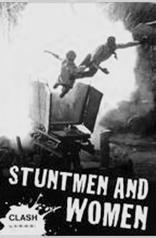In the big cities of Europe and America — London, Paris, New York, people are moving out of the city. They are usually rich families with much money, and they want to live a quieter life. They are tired of the noises and the dirty air of the city, tired of the crowded streets, crowded trains and buses. They don’t want to sit in traffic any more. They want a house with a garden, and clean air that is not polluted.
So they move out. Some don’t move very far, just a little way out of the city, to the towns near the cities. Other people move to real countryside, with sheep, cows and horses, and green fields! There, they start new lives and try to make new friends.
Not all those who move from the city to the countryside are happy. After two or three years, many people feel that it was a big mistake. There isn’t much to do. Country people are very different and aren’t always friendly.
As a result, quite a lot of people move back to the city. “It’s wonderful to see crowds in the streets and cinema lights,” they say. “I’m so glad I’m back in the city!” (203)

小题1:Some city people move out of their city because of _____.
A.crowds and pollution
B.friendly neighborhoods
C.making money
D.cows and sheep小题2:Why do some people move back to the city again? Because _____.
A.they can breathe fresh and clean air
B.there are big shops and cinema lights
C.they still want to live their city life
D.they can make many new friends小题3:Which of the following sentence is wrong according to the passage?
A.Many people love their city’s colorful life.
B.They enjoy seeing animals in the country.
C.All the people move out far from the city.
D.Sometimes country people are not friendly.
小题1:A
小题2:C
小题3:C
题目分析:这篇文章主要讲欧洲和美国大城市里的人移到城外去。这些人通常是很有钱的人,他们想要更安静的生活。但是不是所有移到乡下去的人都是高兴的。相当一部分人又重新移回城市。
小题1:细节理解题。根据 They are tired of the noises and the dirty air of the city, tired of the crowded streets, crowded trains and buses.句意:他们厌恶了噪音、城市里的脏空气,厌恶了拥挤的街道,拥挤的火车和汽车。由此可看出他们移出城市是因为拥挤和污染。故选A。
小题2:推理判断题。根据 “It’s wonderful to see crowds in the streets and cinema lights,” they say. “I’m so glad I’m back in the city!”句意:“看到街上的人群和电影院闪烁的灯真好。”他们说,“我很高兴我又回到了城市。”从他们所说的话中可以看出他们重回城市是因为他们仍然想要过城市生活。可知应选C。
小题3:推理判断题。根据Some don’t move very far,句意:有些人移的不是很远。因此,C选项是的表达是错误的。故选C。
